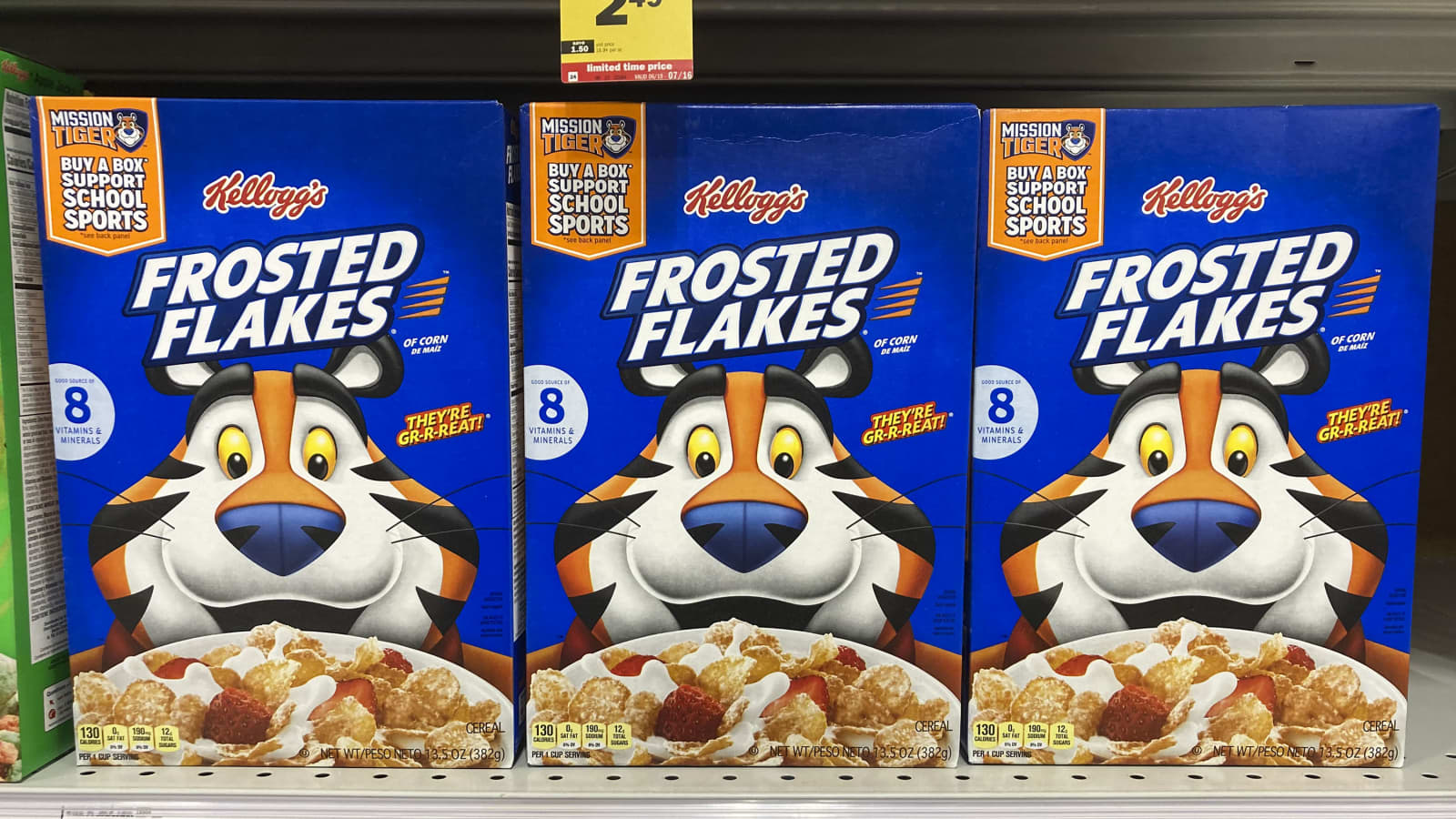Kellogg has concluded plans to split into three food businesses after studying similar break-ups in its own industry and by other companies such as the General Electric.
”We believe the agility and the focus will help the business operate in a tumultuous time,” Steve Cahillane, Kellogg’s chair and chief executive told Financial Times on Tuesday while acknowledging that conditions were not easy.
Cahillane disclosed that Kellogg’s would be keeping its core global snacking business while spinning off the North American cereal brands where the Corn Flakes maker’s origins lie and a smaller business selling plant-based foods.
Join our WhatsApp ChannelShares in the US Group were up 2.6 per cent in Tuesday afternoon trading following its laid out plans for a tax the tax-free spinoffs against rising costs and concerns about consumers trading down to cheaper options amid increased food prices by producers.
Cahillane said he felt no pressure from investors to launch one of the biggest break-ups seen by the industry in recent years, but believed that his strategy would unlock the full potential of Kellogg’s businesses.
The North American cereals business generates $2.4 billion in net sales and would no longer have to compete for capital with snack brands like Pringles and Cheez-It, according to the chief executive. He explained that those brands would sit in the faster- growing and more profitable global snacking business, which, according to Mr Chillane, generated about $11.4 billion in net sales in 2021, or about 80 per cent of Kellogg’s total revenues.
According to him, Kellogg’s is taking a cue from past breaks in its own industry and by companies like GE which launched a three-way split in 2021.
Other food businesses have also been narrowing their portfolios post COVID-19 , while struggling to create organic growth in the midst of changing consumer habits.
Unilever last year agreed to the 4.5 billion Euros sale of its Lipton and Brooke Bond tea brands to CVC Capital Partners, just as Kraft Heinz disposed of brands like Planters peanuts andv Cracker Barrel cheese.
According to Chillane the Kellogg’s larger company would retain the frozen breakfast products in North America as well as its cereal and noodles brands in international markets where they lack the scale Kellogg’s has in the US, Canada and the Caribbean.
Following the Kellogg’s deal announcement, analysts raised price target for Kellogg from $70 to $77 per share, as Jonathan Feeney and Riley McCarten, Consumer Edge Research analysts expect that the split could encourage similar deals in the food sector, and predicting that Campbell Soup and Kraft Heinz would become ”more aggressive to realise value.”
The spin-offs they argue, should produce cost-saving options in the future, ”after a 14-year period of pricey snack deals, cost cuts, a steadily eroding base of organic gross profit and a roughly flat stock price.”


















Follow Us